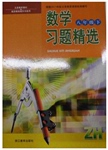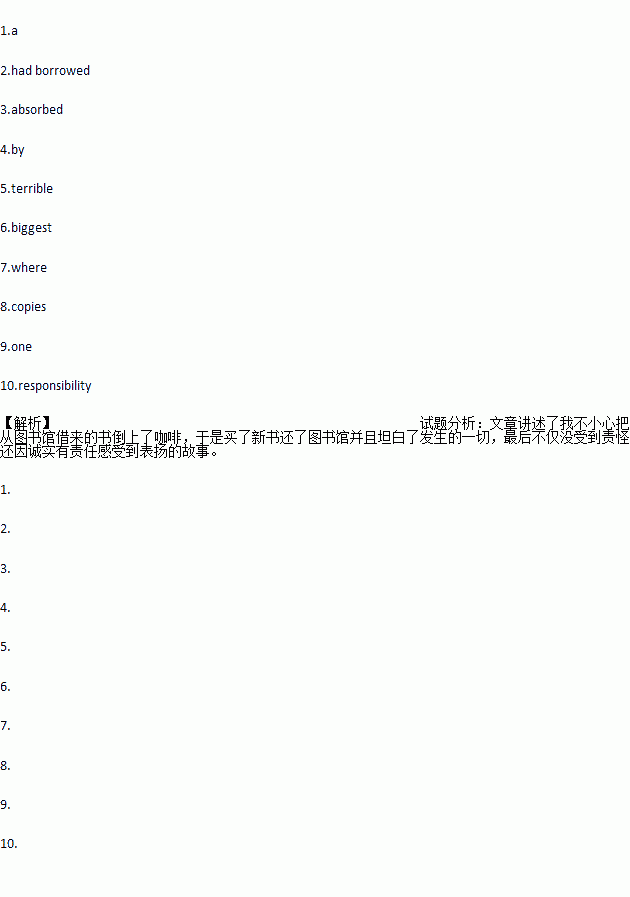题目内容
I borrowed 1.story book from the library the other day and took it home. One evening, having finished supper, I went back to my room and started to read the book that I2.(borrow). I was so 3.(absorb) that I knocked the coffee cup over 4.accident, pouring the coffee onto the book. Wet through and colored brown, the book turned out to be a 5. (terribly) mess at once. Of course, I couldn’t return the dirty book and the loss should be covered. The next day, I went to the6.(big) bookstore in my city, 7.there were various kinds of books. I finally found several 8.(copy) of the same book and bought 9.. When I returned the new story book and explained the reason, the librarian accepted the book and praised me for my honesty and10. (responsible).
 习题精选系列答案
习题精选系列答案
